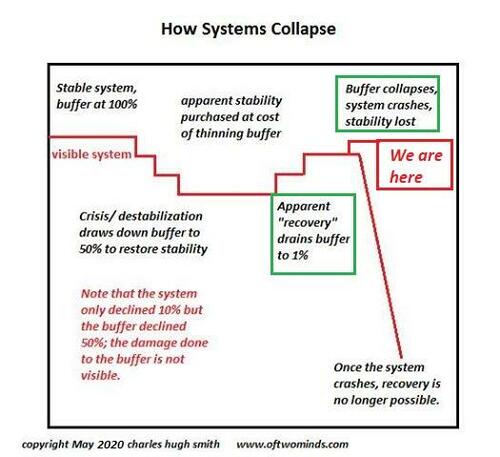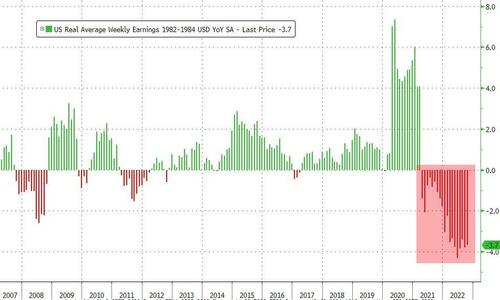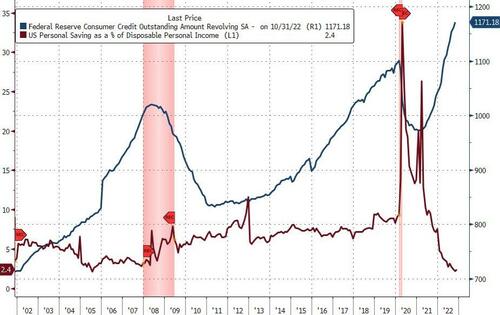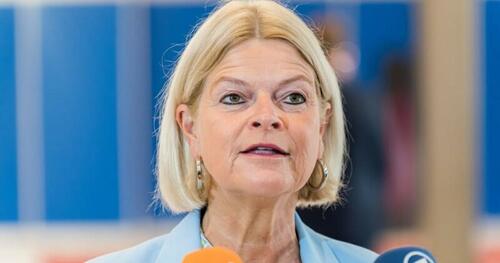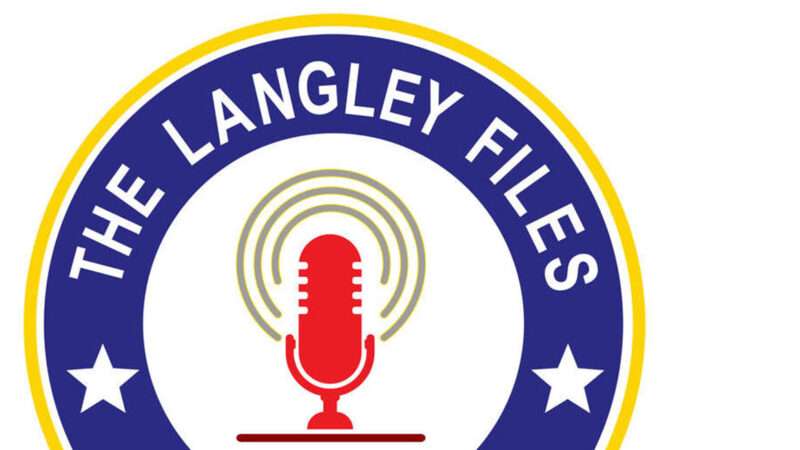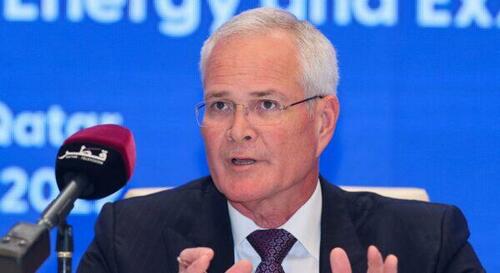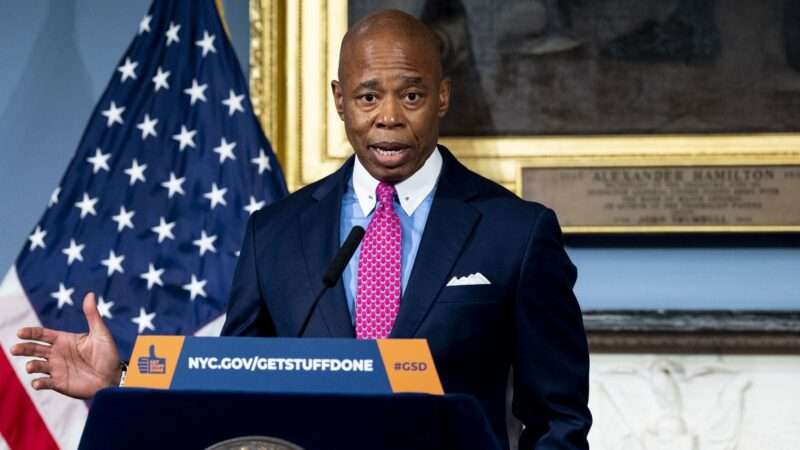
There’s a common type of government official who sincerely believes the world would be better and their suffering subjects much happier if the restraints were removed and politicians were free to act as they wish. That their sincere belief in their goodness is exactly why we need those restraints always escapes them. The latest example of the breed is New York City Mayor Eric Adams who, unironically, urges his constituents to embrace the surveillance state because “Big Brother is protecting you.”
Adams, a former police officer who took office at the beginning of 2022, has made an issue of crime in the city, which is rising following pandemic-era disruptions to society after decades of decline. He returned to crime last week in an interview with Politico‘s Sally Goldenberg and Joe Anuta:
Adams promised an expansion of technology-assisted policing to detect weapons. Over the past year, he has promoted the use of cameras and lauded divisive facial recognition devices.
“It blows my mind how much we have not embraced technology, and part of that is because many of our electeds are afraid. Anything technology they think, ‘Oh it’s a boogeyman. It’s Big Brother watching you,'” Adams said. “No, Big Brother is protecting you.”
This isn’t the first time that Adams has invoked surveillance as the cure for crime concerns. Last January, his office issued a “Blueprint to End Gun Violence,” and the mayor vowed that “from facial recognition technology to new tools that can spot those carrying weapons, we will use every available method to keep our people safe.” But now Mayor Adams is openly belittling concerns about the surveillance state and urging city residents to learn to love Big Brother. At no time has he acknowledged that Big Brother might be a sketchy character, or that his former colleagues at the NYPD have an unfortunate history of abusing surveillance powers—a history that the city’s own government acknowledges.
“The NYPD’s surveillance of individuals and organizations perceived as enemies of the status quo dates back to early 1900s,” notes a 2019 article published by the New York City Department of Records & Information Services. “At different periods, the focus was on anarchists, labor leaders, Nazi supporters, white supremacists, socialists, and communists.”
Controversy over decades of surveillance led to litigation and the 1985 Handschu Guidelines, which created a mixed panel of civilians and police to oversee future surveillance.
In the post-9/11 period, those guidelines were relaxed as much mass surveillance focused on Muslims, coming to an end (supposedly) only in 2014 with the resolution of a lawsuit against the city. Still, in 2016, Senior United States District Judge Charles S. Haight Jr. disapproved the settlement in the case pending stronger safeguards after the revelation of “repeated, near-systemic violations by the NYPD Intelligence Bureau of a pertinent Handschu Guideline.”
“It must be acknowledged that the history of the NYPD’s adherence has been problematic at times,” added Haight about years of continuous violations. “In the 2003 opinion reported at 288 F. Supp. 2d 411, the court had to deal with NYPD detention and questioning of anti-war demonstrators inconsistent with the letter and spirit of the newly enacted Modified Handschu Guidelines.”
So, if Eric Adams wonders why people embrace George Orwell’s warnings and fret, “Oh it’s a boogeyman. It’s Big Brother watching you,” it’s because the police have been watching all sorts of people for over a century, often in violation of even rules loosened for their convenience.
The surveillance technology championed by Adams offers new opportunities for abuse. For example, ShotSpotter, a gunshot detection system, relies on microphones scattered around the city to detect loud noises which its technology then identifies as either harmless or shooting-related, with various degrees of accuracy. You see where this is going, right? Microphones scattered around the city… .
“Though the microphones are as high as 100 feet above the ground, they have the ability to pick up intelligible conversations, which have been deemed admissible in court as part of several criminal cases around the country,” Anthony Fisher wrote for Reason in 2015.
Earlier this month, emails obtained by Bloomberg revealed that ShotSpotter has been sharing the locations of its microphones with NYPD officials—something it said it wouldn’t do. Police then have the potential to tap into those systems to listen in on “conversations in hushed tones and normal conversation inside a home through an open window or door if they occur close enough to a sensor.”
The NYPD says it’s not doing that, but it also said it would abide by the Handschu Guidelines.
The facial recognition technology also touted by Eric Adams was used in November to bar a woman from Madison Square Garden in New York City after the technology identified her as an attorney for a law firm that represents an opponent in a lawsuit. While that incident involved little more than pettiness by a private party, you don’t have to wonder how the technology could be abused by a government; just contemplate its use by Chinese authorities in their ongoing experiments in high-tech dystopia.
“China’s facial recognition system logs nearly every single citizen in the country, with a vast network of cameras across the country,” Alfred Ng noted in a 2020 CNet article. “China’s aggressive development and use of facial recognition offers a window into how a technology that can be both benign and beneficial—think your iPhone’s Face ID—can also be twisted to enable a crackdown on actions that the average person may not even consider a crime.”
Chinese officials may also believe, like Mayor Adams, that “Big Brother is protecting you.” But Big Brother is “protecting” against things that upset Big Brother. Big Brother is certainly not prioritizing the concerns of people who don’t want to be tracked, scrutinized, overheard, disarmed, judged, and penalized by intrusive officials whose standards differ from their own.
Adams may assume his own goodness, but “of all tyrannies, a tyranny sincerely exercised for the good of its victims may be the most oppressive,” as C.S. Lewis warned us. “It would be better to live under robber barons than under omnipotent moral busybodies. The robber baron’s cruelty may sometimes sleep, his cupidity may at some point be satiated; but those who torment us for our own good will torment us without end for they do so with the approval of their own conscience.”
Ultimately, the very fact that Eric Adams, in the guise of Big Brother, wants to protect New Yorkers is all the more reason to tell him to get lost. A surveillance state is no less tyrannical, and perhaps even worse, when the snoops really believe in what they’re doing.
The post New York City Mayor Eric Adams Wants You to Love Big Brother appeared first on Reason.com.
from Latest https://ift.tt/j1DaOkF
via IFTTT


